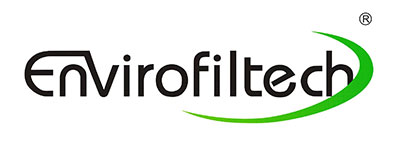Reverse osmosis membrane is to achieve the core component of reverse osmosis, is a simulated biological semipermeable membrane made with certain characteristics of the artificial semipermeable membrane. General use of polymer materials. Such as a cellulose acetate film, an aromatic polyamide film, and an aromatic polyamide film. Surface pore diameter is generally between 0.5 ~ […]
Author Archives: shengjie
Abrasive blasting or blast finishing, with all its variations, can provide enough power to remove heavy surface materials, or can be gentle enough to take print off paper without penetration. Typically, blasting provides one of three general – as a surface finishing, surface preparation, or surface modification process. As a surface finishing process: • Removing surface contamination • Creating […]
Food processing industries move a variety of products – grain, sugar, flour, dairy, cocoa, cereal, spices and many more. Depending on the application, there may be concern with cross contamination, sanitary regulations, and/or food handling regulations. Dust collectors or “material separators” in the food industry keep the product in the process stream through use of a bin vent […]
Commercially produced glass can be classified as soda-lime, lead, fused silica, borosilicate, or 96 percent silica with soda- lime glass representing three-quarters of the glass produced. Glass is manufactured from materials that are crushed, weighed, mixed and melted to produce flat glass, container glass, pressed glass and blown glass. Typical applications producing dust include — […]
GRINDING Grinding operations employ abrasive grains in various forms for the removal of material and metal to produce of different types of surface finishes. Abrasive grains held together with a hard, durable bonding material make grinding wheels, abrasive stones, and sticks. Abrasives can also be applied on fibrous sheets, paper, or cloth with the principle materials being […]
PROCESSES INVOLVING GRAIN DUST Most grain dust is created by material handling processes, which include: Dump pits Break milling Sifters / Sorters / Classifiers Elevator legs Bin / Silo loading Roller milling Conveyors Packaging Barge / Rail car / Truck loading Garner scales Drying Mixing bin venting Grain cleaners Hammer milling […]
Thermal Spray Thermal Spray or Metalising is a group of coating processes which deposits finely divided metallic or non-metallic materials in a molten or semi-molten condition on a surface/substrate to form a coating. The coating material may start out in the form of a powder, ceramic rod, wires, or even molten materials. The process has […]
Foundries were one of the first industries to use local exhaust ventilation to control contaminants in the workplace and provide protection for the environment. Foundries continue to lead in this area today and Filmedia®dust collectors provide the advanced filter technology required to do so.Filmedia® dust collectors are installed in hundreds of foundries worldwide exhausting furnaces […]
WHY THE NEED FOR MIST COLLECTION Mist, including water, coolants and oil, can create a film that collects on surrounding surfaces, affecting worker morale and productivity and, potentially, health and safety. Properly selected mist collection, when correctly applied, helps to reduce this problem. Many larger businesses reclaim their coolant and filter it for re-use. Small, […]
Manufacturing and packaging within the Pharmaceutical industry can generate a variety of types of nuisance dust. Depending on the type, there may be concerns with cross-contamination with other products, GMP issues or occupational exposure limits to active pharmaceutical ingredients for plant workers.Donaldson have a wide range of dust collectors well suited to the Pharmaceutical industry […]


 العربية
العربية Español
Español Русский
Русский 中文 (中国)
中文 (中国)